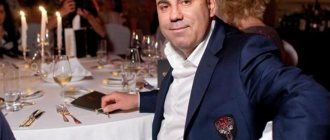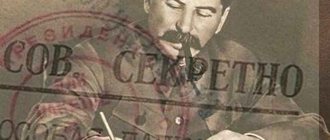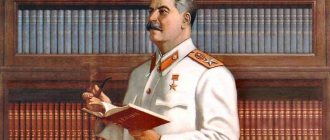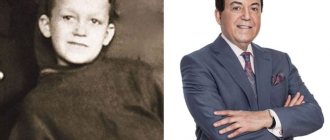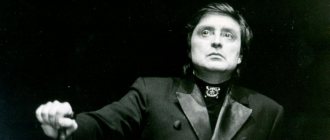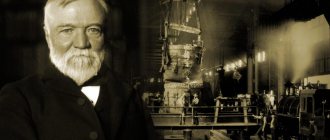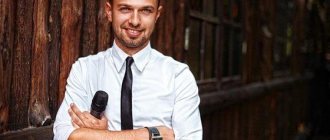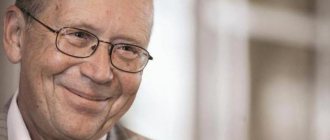Biography of Joseph Brodsky
Joseph Alexandrovich Brodsky is a Russian literary classic and one of the most significant poets in the world. He is treated with special reverence, he is admired, his unique style of writing with hidden pathos, fracture, irony is imitated, and the texts are parsed into quotes.
In the photo: Joseph Alexandrovich Brodsky
An extraordinary fate prepared for him, along with exile to the North and imprisonment in a mental hospital, the Nobel Prize and the Legion of Honor, an unfinished basic education and a career as a professor at Michigan, Yale and other prestigious universities, many years of creativity abroad outside the Russian language environment after deprivation of Soviet citizenship and the discovery of new expressive capabilities of the native language.
Joseph Brodsky - a multifaceted personality
He deliberately read his poems like a spell - mournfully, so that listeners would be captivated not by his bright performance or masculine charisma, but by the word itself. In his Nobel speech, he once again emphasized that “not language is his instrument, but he is the means of language.”
Childhood
The future “poetic intellect of the twentieth century” (according to the laureate of the Russian and Gogol Prizes Alexei Kurilko) was born on May 20, 1940 in Northern Palmyra. His early childhood occurred during the Second World War and post-war devastation.
Young Joseph Brodsky with his father
In 1942, together with his mother Maria Moiseevna, who came from Daugavpils and was an accountant by profession, he evacuated to Chernivtsi. There, a woman who spoke German and French worked as a translator for the Ministry of Internal Affairs in a prisoner of war camp.
Joseph Brodsky's mother - Maria
Father, Alexander Ivanovich, the son of the owner of a St. Petersburg printing house, was a naval officer, a participant in breaking the siege of Leningrad and the defense of Malaya Zemlya. After the Victory, he worked at the Naval Museum as a photographer, and Masya, as the son called his mother, returned to her accounts and estimates.
Osya learned to read at the age of 4, but at school he did not show good performance or behavior. According to the recollections of teachers, he grew up stubborn and lazy, often ignored homework and interfered with lessons, although he could well have become an excellent student. During his studies, he changed five schools.
Joseph Brodsky in his youth
In 1955, without finishing the eighth grade, Joseph dropped out of school and went to work - money in their family was not very good. Then he unsuccessfully tried to become a cadet at a naval school and changed many working professions (milling operator, orderly, watchman, fireman), and participated in geological expeditions for several years.
At the same time, he read a lot. In particular, he was most impressed by Saadi’s book “Gulistan” (“The Rose Garden”), read on the advice of his mother, a big fan of Persian poetry. In addition, he independently learned English and Polish.
Childhood and youth
Joseph Brodsky was born on May 24, 1940 in Leningrad into a Jewish family. Father, captain 3rd rank of the USSR Navy Alexander Ivanovich Brodsky (1903-1984), was a military photojournalist, returned from the war in 1948 and went to work in the photo laboratory of the Naval Museum. In 1950 he was demobilized, after which he worked as a photographer and journalist in several Leningrad newspapers. Mother, Maria Moiseevna Volpert (1905-1983), worked as an accountant. Mother's sister is an actress of the BDT and the Theater named after. V. F. Komissarzhevskaya Dora Moiseevna Volpert.
Joseph's early childhood was spent during the years of war, blockade, post-war poverty and passed without a father. In 1942, after the blockade winter, Maria Moiseevna and Joseph went for evacuation to Cherepovets, returning to Leningrad in 1944. In 1947, Joseph went to school No. 203 on Kirochnaya Street, 8. In 1950, Joseph moved to school No. 196 on Mokhovaya Street, in 1953, Joseph went to the 7th grade at school No. 181 on Solyanoy Lane and stayed the following year in the second year. In 1954, he applied to the Second Baltic School (naval school), but was not accepted. He moved to school No. 276 on Obvodny Canal, house No. 154, where he continued his studies in the 7th grade.
In 1955, the family received “one and a half rooms” in the Muruzi House.
Brodsky's aesthetic views were formed in Leningrad in the 1940s and 1950s. Neoclassical architecture, heavily damaged during the bombing, endless vistas of the Leningrad outskirts, water, multiple reflections - motifs associated with these impressions of his childhood and youth are invariably present in his work.
In 1955, at less than sixteen years old, having completed seven grades and starting the eighth, Brodsky left school and became a milling machine apprentice. This decision was related both to problems at school and to Brodsky’s desire to financially support his family. Tried unsuccessfully to enter submariner school. At the age of 16, he got the idea of becoming a doctor, worked for a month as an assistant dissector in a morgue at a regional hospital, dissected corpses, but eventually abandoned his medical career. In addition, for five years after leaving school, Brodsky worked as a stoker in a boiler room and as a sailor in a lighthouse.
Since 1957, he was a worker in geological expeditions of NIIGA: in 1957 and 1958 - on the White Sea, in 1959 and 1961 - in Eastern Siberia and Northern Yakutia, on the Anabar Shield. In the summer of 1961, in the Yakut village of Nelkan, during a period of forced idleness (there were no deer for a further hike), he had a nervous breakdown, and he was allowed to return to Leningrad.
At the same time, he read a lot, but chaotically - primarily poetry, philosophical and religious literature, and began to study English and Polish.
In 1959 he met Evgeny Rein, Anatoly Naiman, Vladimir Uflyand, Bulat Okudzhava, Sergei Dovlatov.
On February 14, 1960, the first major public performance took place at the “tournament of poets” in the Leningrad Palace of Culture. Gorky with the participation of A. S. Kushner, G. Ya. Gorbovsky, V. A. Sosnora. The reading of the poem “Jewish Cemetery” caused a scandal.
During a trip to Samarkand in December 1960, Brodsky and his friend, former pilot Oleg Shakhmatov, considered a plan to hijack a plane in order to fly abroad. But they did not dare to do this. Shakhmatov was later arrested for illegal possession of weapons and reported this plan to the KGB, as well as about another friend of his, Alexander Umansky, and his “anti-Soviet” manuscript, which Shakhmatov and Brodsky tried to give to an American they met by chance. On January 29, 1961, Brodsky was detained by the KGB, but two days later he was released.
In August 1961, in Komarov, Evgeniy Rein introduces Brodsky to Anna Akhmatova. In 1962, during a trip to Pskov, he met N. Ya. Mandelstam, and in 1963, at Akhmatova’s, with Lydia Chukovskaya. After Akhmatova’s death in 1966, with the light hand of D. Bobyshev, four young poets, including Brodsky, were often referred to in memoirs as “Akhmatova’s orphans.”
In 1962, twenty-two-year-old Brodsky met the young artist Marina (Marianna) Basmanova, daughter of the artist P. I. Basmanov. From that time on, Marianna Basmanova, hidden under the initials “M. B.”, many of the poet’s works were dedicated. “Poems dedicated to “M. B.“, occupy a central place in Brodsky’s lyrics not because they are the best - among them there are masterpieces and there are passable poems - but because these poems and the spiritual experience invested in them were the crucible in which his poetic personality was smelted." . The first poems with this dedication - “I hugged these shoulders and looked...”, “No longing, no love, no sadness...”, “A riddle to an angel” date back to 1962. The collection of poems by I. Brodsky “New Stanzas for Augusta” (USA, Michigan: Ardis, 1983) is compiled from his poems of 1962-1982, dedicated to “M. B." The last poem with dedication “M. B." dated 1989.
On October 8, 1967, Marianna Basmanova and Joseph Brodsky had a son, Andrei Osipovich Basmanov. In 1972-1995. M.P. Basmanova and I.A. Brodsky were in correspondence.
Creation
In 1956-1957 Brodsky began to write, not yet knowing that in the future he would be recognized as a literary genius. His early lyrics include the poems “Farewell”, “Now I increasingly feel tired...”, “Pilgrims”, “Stanzas”, “Loneliness”, “Elegy (Costs of the Spirit - Cries of the Mind)”, “Verbs”. Subsequently, he also worked on children's poetry (“The Ballad of the Little Tugboat”), translations of Polish poems and lyrics of The Beatles songs, calling them “absolutely wonderful.”
Joseph Brodsky in his youth
One day in 1958, together with his friends, he considered the possibility of hijacking a plane from Samarkand to Iran to escape from the country. The KGB became aware of this (through a denunciation from one of his friends), and the poet was detained for two days.
In 1960, a young author, a member of great literature, spoke in public for the first time in the Palace of Culture. Gorky. He read “The Jewish Cemetery,” which caused a scandal and calls for preventive conversations to the competent authorities. They started talking about him.
In 1960, Joseph Brodsky speaks to the public for the first time
Jewish cemetery near Leningrad / A crooked fence made of rotten plywood / Behind the crooked fence lie nearby / lawyers, merchants, musicians, revolutionaries. His fame grew rapidly in unofficial literary circles. He met Sergei Dovlatov, Bulat Okuzhdava, began communicating with Evgeniy Rein, and dedicated “A Christmas Romance” to him. In 1961, in Komarovo, Brodsky was introduced to Anna Akhmatova, who became his teacher and critic. The poetry of Evgeny Baratynsky, Marina Tsvetaeva, Boris Slutsky, Osip Mandelstam also had a great influence on the work of the aspiring writer.
The freedom and demonstrative apoliticality of the texts of his creations prompted the authorities to treat him closely and distrustfully. The publication of several poems in the dissident poetic almanac “Syntax” led to a new detention of the poet by law enforcement officers and finally closed the path to official literature.
Persecution by authorities
After Nikita Khrushchev’s meetings with cultural figures in 1963, where the head of state gave instructions on how to draw and what music and poetry should become, the authorities began to fight unreliable people in creative professions. Joseph Brodsky was among them.
Photos from Brodsky's trial
In 1964, Brodsky was arrested and accused of parasitism. He was tortured for three weeks in a mental hospital during a forensic examination, and then sentenced to 5 years of labor in the North. There he was engaged in uprooting stones, herding cattle, building and repairing roofs and continued to write - “Songs of a Happy Winter”, “Honeymoon Slice”, “Letters to the Wall”, etc.
In 1965, on the wave of indignation against the poet’s exile, his first book, Poems and Poems, was published abroad. And six months later, thanks to the petition of Shostakovich, Tvardovsky, Marshak and other pillars of Soviet culture, as well as numerous publications in the Western press and the assistance of the French philosopher and adherent of Marxism Jean-Paul Sartre, Brodsky was released early, and international fame came to him.
Joseph Brodsky gained fame after his release
To eliminate the risk of further accusations of parasitic existence, he entered official work as a translator in the city branch of the Writers' Union. But he was not allowed to freely engage in literature and was practically not published.
However, the poet worked fruitfully: he wrote the poem “Gorbunov and Gorchakov”, the poems “Debut”, “Still Life”, “Love”, prepared for publication in 1970 in the USA the collection of poems “Stopping in the Desert”, the second in a row, but the first compiled by him personally, translated T. Stoppard’s absurdist tragicomedy “Rosencrantz and Guildenstern are Dead.” In 1971, the Bavarian Academy of Fine Arts elected him as a member, the highest honor available to it.
Short biography. Joseph Brodsky (1940 - 1996)
Joseph Brodsky was born on May 24, 1940 in Leningrad into a Jewish family. In 1955, at less than sixteen years old, having completed seven grades and starting the eighth, Brodsky left school and became a milling machine apprentice. This decision was related both to problems at school and to his attitude towards the Soviet system (which he later wrote about in his essays).
On November 29, 1963, an article “Near-Literary Drone” appeared in the newspaper “Evening Leningrad”, signed by Y. Lerner, M. Medvedev and A. Ionin. The authors of the article condemned Brodsky for his “parasitic lifestyle.”
On January 8, 1964, Vecherny Leningrad published a selection of letters from readers demanding that the “parasite Brodsky” be punished. On January 13, 1964, Brodsky was arrested on charges of parasitism.
Here are excerpts from the transcript of the court hearing:
Judge: What is your work experience? Brodsky: Approximately... Judge: We are not interested in “approximately”! Brodsky: Five years. Judge: In general, what is your specialty? Brodsky: Poet, poet-translator. Judge: Who admitted that you are a poet? Who classified you as a poet? Brodsky: Nobody (No call). And who ranked me among the human race? Judge: Did you study this? Brodsky: To what? Judge: To be a poet? They didn’t try to graduate from a university where they prepare... where they teach... Brodsky: I didn’t think... I didn’t think that this was given by education.
On March 13, 1964, at the second court hearing, Brodsky was sentenced to the maximum possible punishment under the decree on “parasitism” - five years of forced labor in a remote area. He was exiled (transported under escort along with criminal prisoners) to the Konoshsky district of the Arkhangelsk region and settled in the village of Norenskaya.
Outside the USSR, Brodsky's poems at that time continued to appear both in Russian and in translation, primarily in English, Polish and Italian.
In 1967, an unauthorized collection of translations “Joseph Brodsky” was published in England. Elegy to John Donne and Other Poems / Tr. by Nicholas Bethell. In 1970, “Stop in the Desert,” Brodsky’s first book compiled under his supervision, was published in New York. Poems and preparatory materials for the book were secretly exported from Russia or, as in the case of the poem “Gorbunov and Gorchakov,” sent to the West by diplomatic mail.
In 1971, Brodsky was elected a member of the Bavarian Academy of Fine Arts.
On June 4, 1972, Brodsky, deprived of Soviet citizenship, flew from Leningrad along the route prescribed for Jewish emigration: to Vienna.
In July 1972, Brodsky moved to the United States and accepted the post of “guest poet” (poet-in-residence) at the University of Michigan in Ann Arbor, where he taught, intermittently, until 1980. From that moment on, Brodsky, who completed incomplete 8 grades of high school in the USSR, led the life of a university teacher, holding professorships over the next 24 years in a total of six American and British universities, including Columbia and New York. He taught the history of Russian literature, Russian and world poetry, the theory of verse, and gave lectures and poetry readings at international literary festivals and forums, in libraries and universities in the USA, Canada, England, Ireland, France, Sweden, and Italy.
“Taught” in his case needs clarification. For what he did was little similar to what his university colleagues, including poets, did. First of all, he simply did not know how to “teach”. He had no personal experience in this matter... Every year out of twenty-four, for at least twelve weeks in a row, he regularly appeared before a group of young Americans and talked to them about what he loved most in the world - about poetry... What was the name course, it was not so important: all his lessons were lessons in slow reading of a poetic text... (Lev Losev - Poet at the Department: Introduction (in the book Joseph Brodsky: Works and Days. M.: Nezavisimaya Gazeta, 1999)
In 1977, Brodsky accepted American citizenship, in 1980 he finally moved from Ann Arbor to New York, and subsequently divided his time between New York and South Hadley, a university town in Massachusetts, where from 1982 until the end of his life He taught spring semesters at the Five Colleges Consortium.
He was buried in the San Michele cemetery in Venice.
Abroad
In 1972, the writer was actually expelled from the country, being offered either immediate departure or a dungeon. At 32, he left his hometown and his parents and went to Vienna. There he met the greatest poet of the last century, W. Auden. Together they visited London and took part in Poetry International.
In 1972, Brodsky was expelled from the country
Then he moved to Ann Arbor, America, where, under the patronage of publisher Karl Proffer, he received a teaching position at the University of Michigan. In December of the same year, the dream of his St. Petersburg youth came true - he visited Venice.
Subsequently, Brodsky did not stop teaching - he gave lectures and seminars at Columbia and New York universities, Cambridge, the Sorbonne, Queens College and many other educational institutions in Great Britain, Canada, Sweden, Italy, and Ireland.
Joseph Brodsky at the University of Michigan
In 1977, his works “The End of a Beautiful Era” and “Part of Speech” were published, marking the next stage of his creative maturity. Joseph received US citizenship, wrote essays in English, and translated poems by Russian poets, including Vladimir Nabokov. In 1978 he became a member of the American Academy of Arts. True, not for long - in 1987 he left this scientific organization, protesting against the membership of Yevgeny Yevtushenko (the two writers had a long-standing conflict; being at first friends inseparable, they later quarreled due to ideological contradictions).
Joseph Brodsky (left) and Evgeny Yevtushenko (right)
In 1981 he received a MacArthur “genius grant”, in 1982 “Roman Elegies” appeared, a year later - “New Stanzas for Augusta” and “Marble”. In 1986, he systematized his prose and published Less than One, which became the best literary critical work of the year and one of the reasons why the author was awarded the National Book Critics Award. Then Urania came out.
After emigrating, Brodsky never saw his parents again. For 11 years they tried to get permission to leave to visit their son, but were refused over and over again. The poet was denied entry into the territory of the USSR in order to see them off on their final journey - Maria Moiseevna died in 1983, Alexander Ivanovich died in 1984.
Joseph Brodsky's parents never saw their son before his death
In 1987, Brodsky's work already had the widest recognition, and at the age of 47 he became the laureate of the main literary award - the Alfred Nobel Prize. In the 1990s, his works finally began to be published in Russia, and they offered to return, awarding him the title of Honorary Citizen as a sign of gratitude and for his services to the Northern Capital. However, Brodsky invariably rejected all invitations, Fr.
Personal life of Joseph Brodsky
The poet's first love was Marina Basmanova. A striking beauty with emerald-colored eyes and dark brown hair, a silent hereditary artist, was introduced to him at the New Year's Eve 1962 celebration. Very soon they began dating.
Marina Basmanova
There were rumors that her parents were against their marriage. “The bride,” as he called her, cheated on him with his best friend, Dmitry Bobyshev, but after the trial she returned and went into exile with him. In 1968, their son Andrei was born, but their relationship soon went wrong. He subsequently dedicated many poetic works to her.
In 1972, ballerina of the Mariinsky Theater corps de ballet Maria Kuznetsova gave birth to the poet’s illegitimate daughter Anastasia, whom he never saw. For a long time, Brodsky was also very attached to Veronica Schiltz, a French historian and translator. His 1993 poem “The Persian Arrow” is dedicated to her.
Joseph Brodsky with his wife and daughter
At the end of his years, fate gave the genius a meeting with an intelligent and beautiful Italian woman with Russian roots, Maria Sozzani, almost 30 years younger than him. They first met in early 1990 at the Sorbonne, where she flew to listen to his lecture. Then the girl wrote him a letter from Italy, in the summer they went to Sweden together, and in September they got married. He was finally, unconditionally happy. In 1993 they had baby Anna.
Personal life
Joseph Brodsky's first great love was the artist Marina Basmanova, whom he met in 1962. They dated for a long time, then lived together. In 1968, Marina and Joseph had a son, Andrei, but with the birth of the child, the relationship worsened. They separated that same year.
In 1990, he met Maria Sozzani, an Italian aristocrat with Russian roots on her mother’s side. That same year, Brodsky married her, and three years later their daughter Anna was born. Unfortunately, Joseph Brodsky was not destined to see his daughter grow up.
The poet is known as a famous smoker. Despite undergoing four heart surgeries, he never quit smoking. Doctors strongly advised Brodsky to give up the addiction, to which he replied: “Life is wonderful precisely because there are no guarantees, none ever.”
Joseph Brodsky also loved cats. He claimed that these creatures do not have a single ugly movement. In many photos, the creator is photographed with a cat in his arms.
With the support of the writer, the Russian Samovar restaurant opened in New York. The co-owners of the establishment were Roman Kaplan and Mikhail Baryshnikov. Joseph Brodsky invested part of the money from the Nobel Prize into this project. The restaurant has become a landmark of “Russian” New York.
Death
In 1964, after being arrested on charges of parasitism, the writer suffered a massive myocardial infarction. He had heart attacks later. In total, Brodsky survived 4 heart attacks and 2 heart surgeries, but did not give up the habit of smoking dozens of unfiltered cigarettes every day, washing them down with strong coffee. “A man picked up a cigarette and became a poet,” he joked with doctors who urged him to quit smoking. Joseph Brodsky. Geniuses and villains. On January 28, 1996, the brilliant poet passed away. He died at night from cardiac arrest. His body was temporarily placed in a crypt in a New York cemetery and then reburied in Venice. According to tradition, crowds of fans carry pencils to his grave.
World fame
At the age of forty, Joseph Brodsky, whose biography was already known in the West, gained worldwide fame as a writer thanks to works written in English. The biography of Joseph Brodsky was replenished with another significant date: in 1987 he became the youngest Nobel laureate in the field of literature. At the same time, for the first time in 20 years, the poet’s poems were published in his homeland.
By the end of the decade, the first studies of creativity appeared. Joseph Alexandrovich Brodsky almost immediately receives many prestigious literary awards.
Success and popularity were a fair reward for the persecution and bullying suffered. However, the experiences of past years did not pass without a trace. In the 90s, the poet underwent another heart operation.
In January 1996, Brodsky's wife announced his death. As it was later established, the cause was another heart attack. The poet was buried in Venice.
